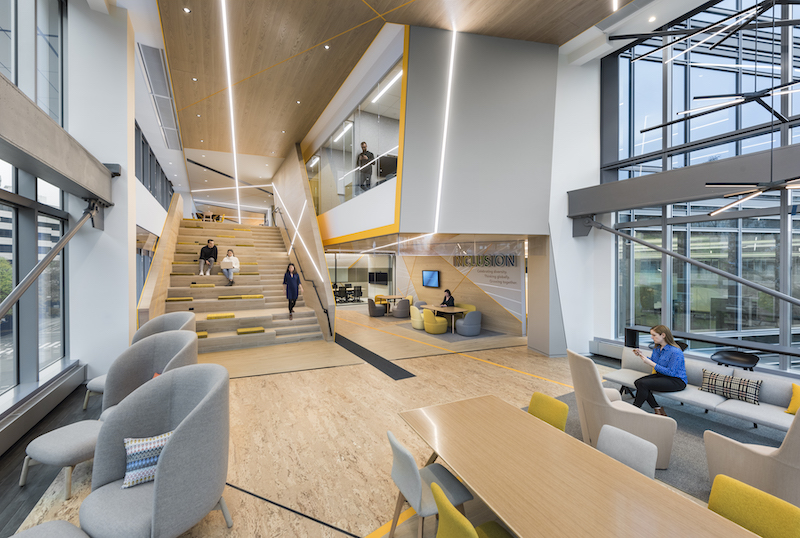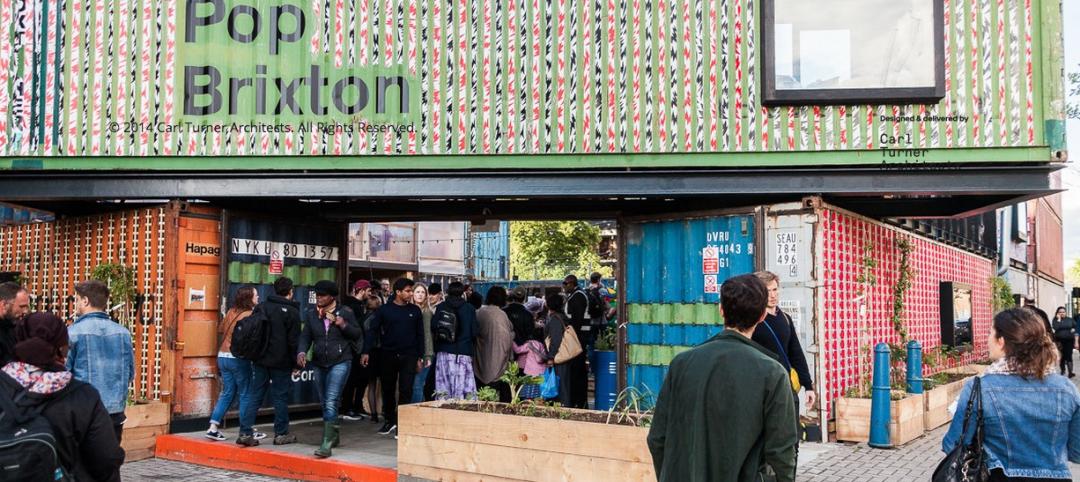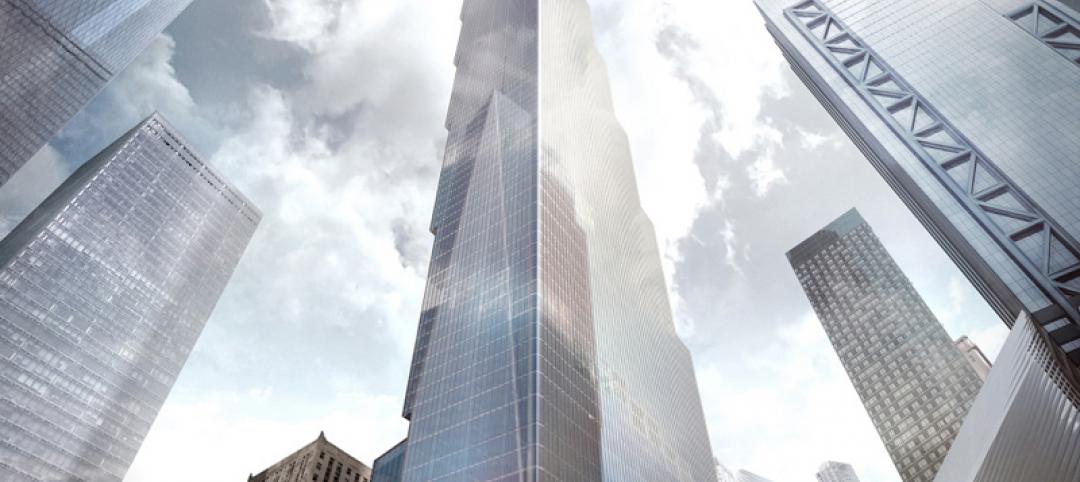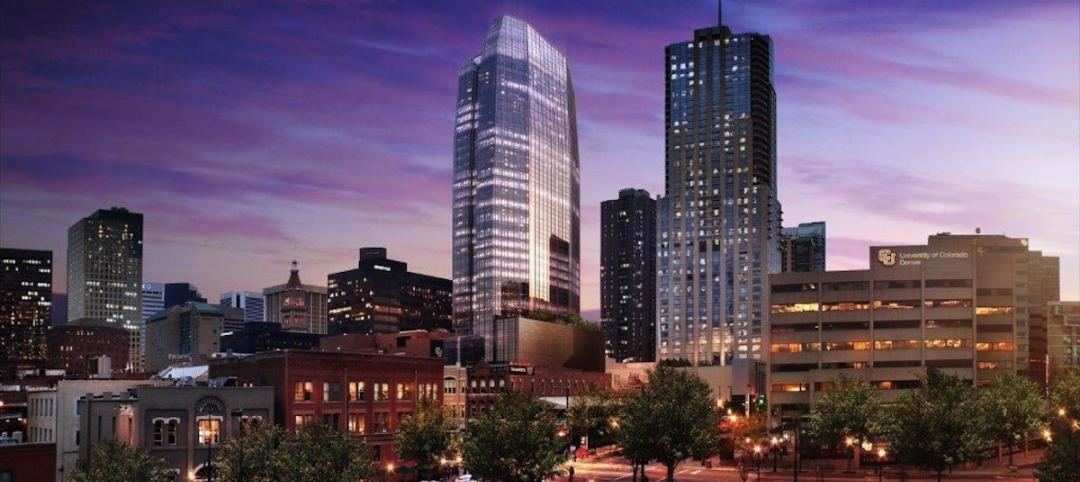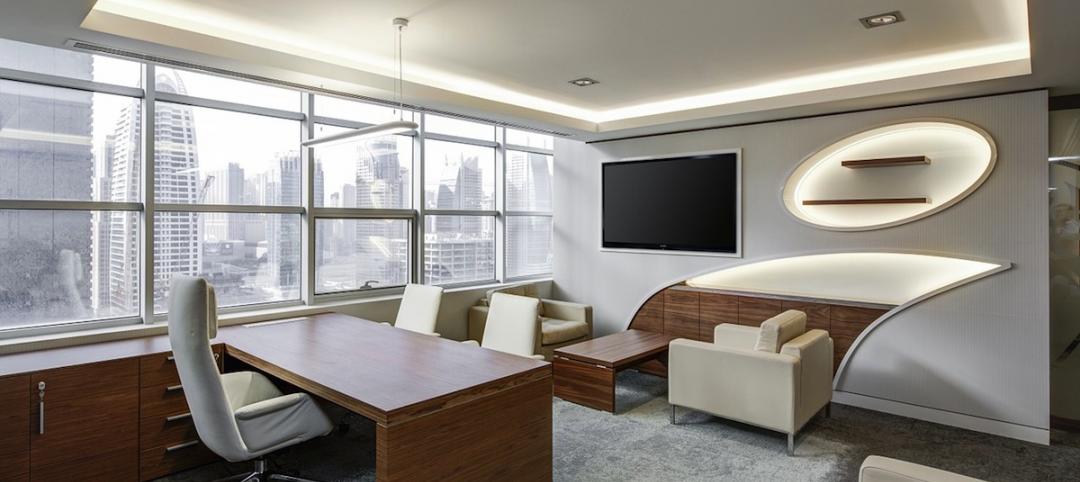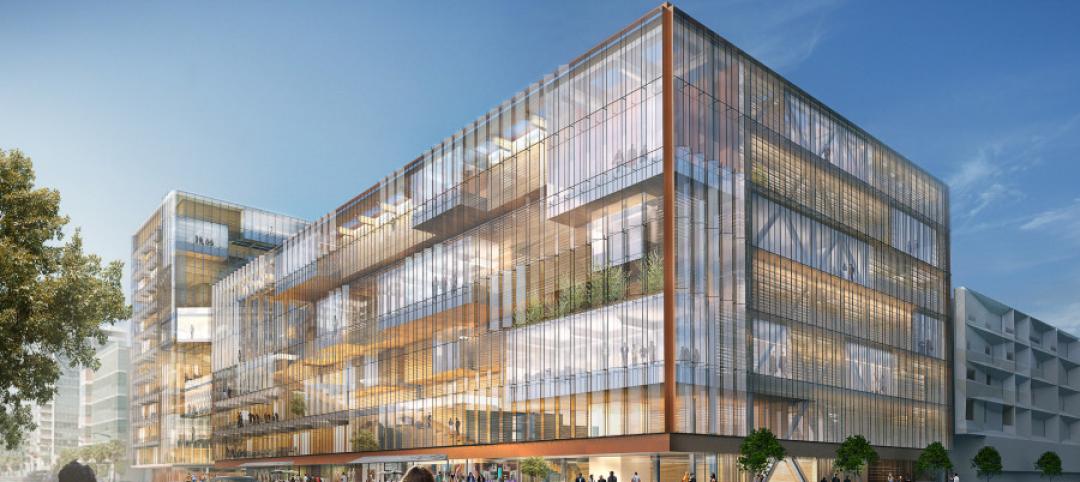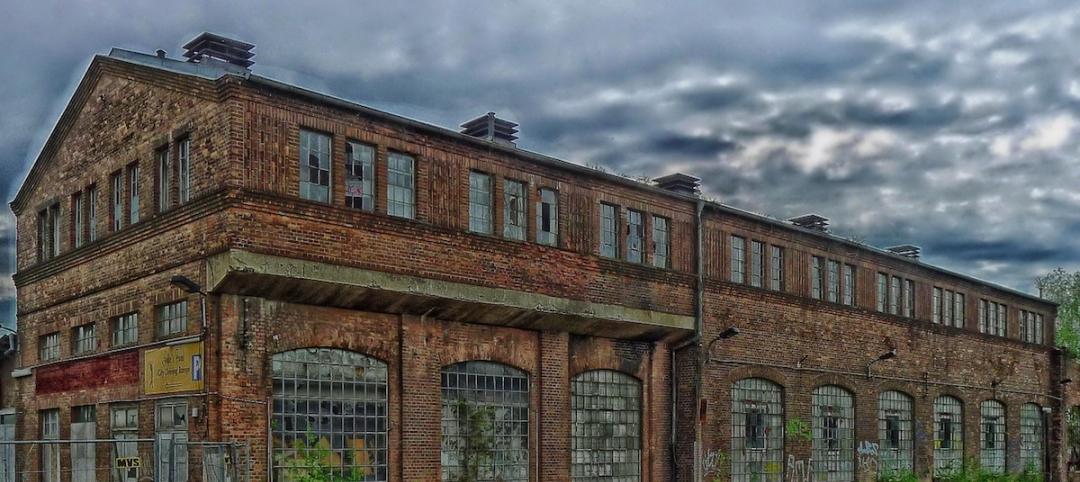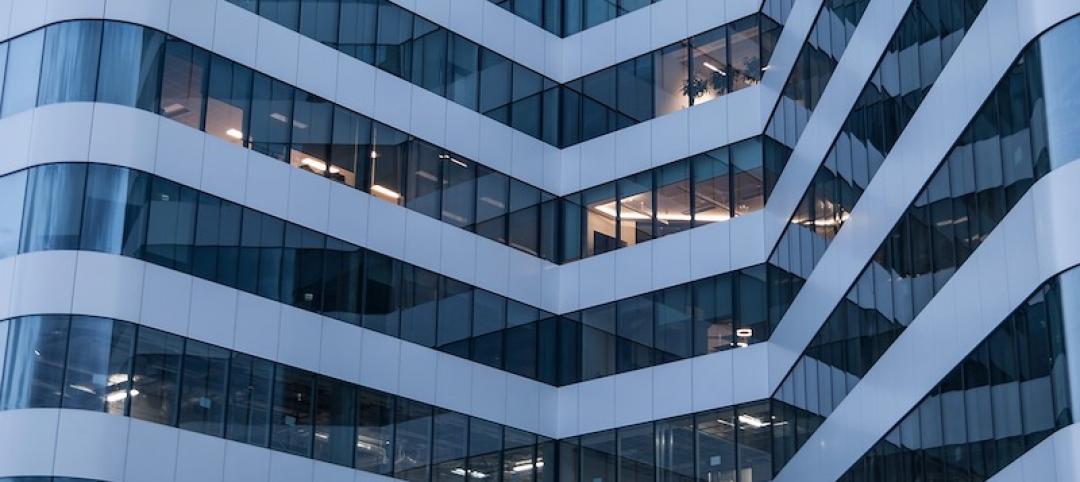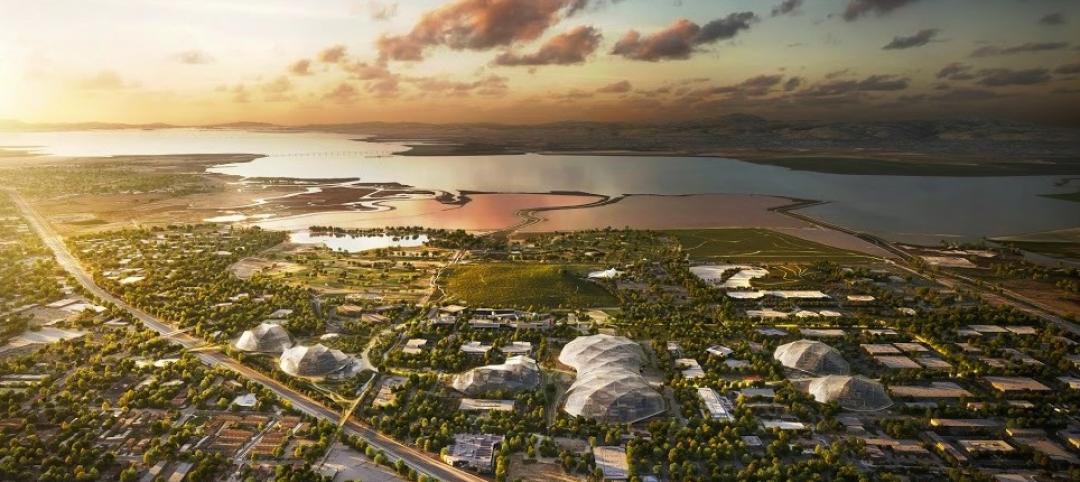Akamai is the largest distributed platform operating at the edge of the Internet. On Nov. 1, it held a grand opening ceremony for the opening of its 19-story, 480,000-sf headquarters in Cambridge, Mass., which brings employees from six properties under one roof.
Those 19 floors are connected by the Akamile, a mile-long uninterrupted path that extends from the building’s street lobby to its highest floor. Sasaki was the interior designer of this building, and its vision for Akamile was to provide areas for socialization (from high-tech conference rooms to game stations), business, and seclusion, each of which is clearly denoted with colors and furniture specific to the workspace.
The goal of the space is to get employees to want to be in the office, as opposed to working remotely. “To connect the world, we must first connect to each other” was Sasaki’s mission statement for Akamai’s headquarters.
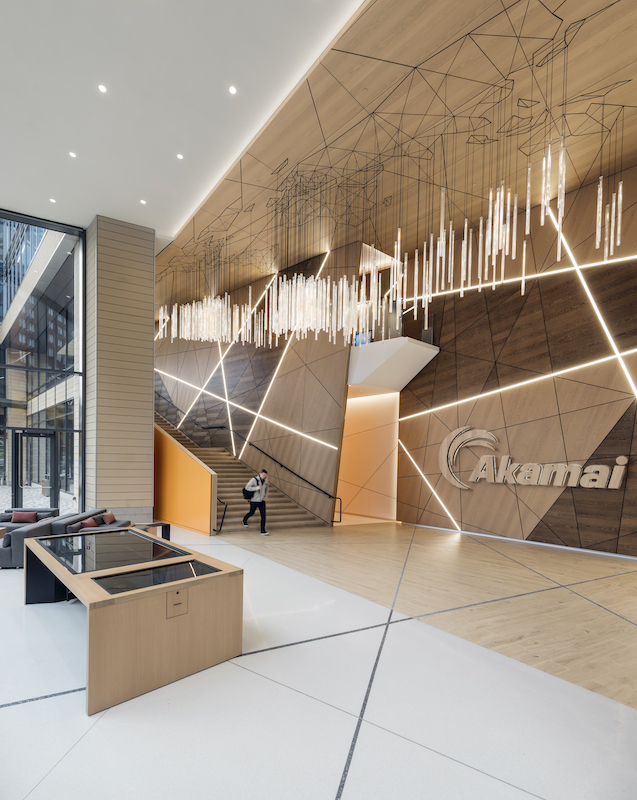
Greeters meet visitors coming into Akamai's two-story lobby.
To provide a personalized, welcoming experience, the building’s two-story lobby dispenses with a concierge desk in favor of greeters. The first three stories of the building are in “Akamai orange,” the top three in “Akamai blue,” and the rest in different color schemes that provide wayfinding for visitors as they step from the elevators. The color scheme is also meant as a directional signal to collaborative work areas.
(The color is bright in the Akamile, and subdued in workspaces. Brightness denotes when workers are in collaborative versus individual spaces.)
Sasaki developed a parametric interior design for Akamile, to generate an interconnected line pattern throughout the building. These color lines increase in spaces where connectivity and communal work are frequent.
Akamile is also used for programming. The Commons, on the third floor, includes an IT help desk, coffee bar, mail room, and supply room. Floor eight offers ping pong and pool tables, and the stairs double as shared seating. There are also moveable stairs that allow the floor space to be reconfigured.
The Building Team on this project included Boston Properties (developer and owner), Pickard Chilton (exterior design architect), Stantec (exterior AOR), and Turner Construction (interior CM). The interior construction exceeded $100 million, and Akamai has taken a 15-year lease.
At 19 stories, the headquarters is the tallest office building in Cambridge’s Kendall Square. The building includes Akamai’s new Network Operations Command Center, Broadcasting Operations Control Center, and Security Operations Center, where DDoS attacks are detected and mitigated.
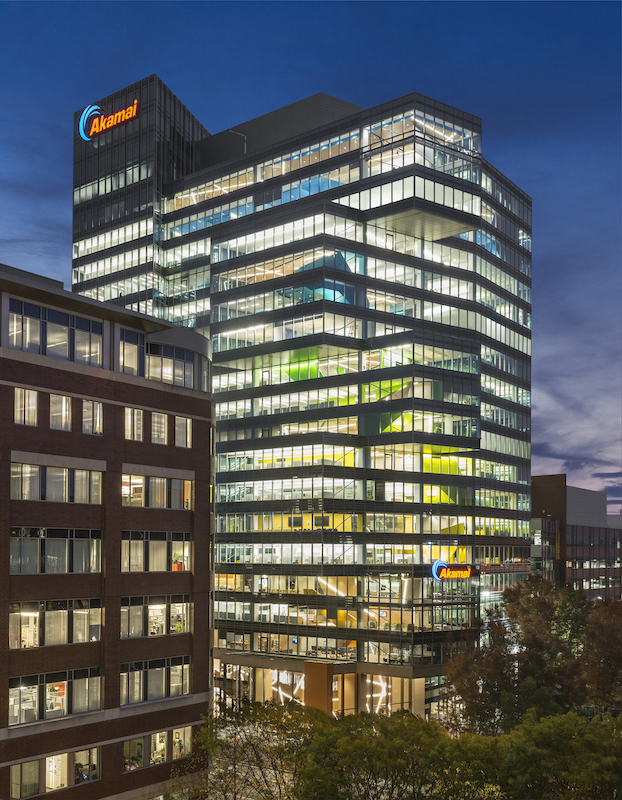
The interior buildout of the 19-story headquarters cost more than $100 million. The building was designed to achieve WELL and LEED Gold certifications.
Akamai’s headquarters is shooting for WELL certification by next summer. All foods sold in the building will include at least 50% fruit or vegetable options. At least half of the food has grain flour as their primary ingredient. Nonpackaged foods will list their ingredients.
Over 70% of the building’s workstations are within 20 feet of a window. There are electronic sit-to-stand desks, and the interior is monitored for thermal comfort. Private spaces use fabric screens to absorb sound, and all spaces are designed to limit reverberations and provide proper sound levels relative to acoustics.
The building’s operations are designed to be water- and energy-efficient: A rooftop solar panel array provides more than 82,000 kWh per year of electricity. The building’s HVAC system features active chill beans (made in Massachusetts) that are expected to be at least 30% more efficient. The building will receive LEED v4 Gold core and shell certification.
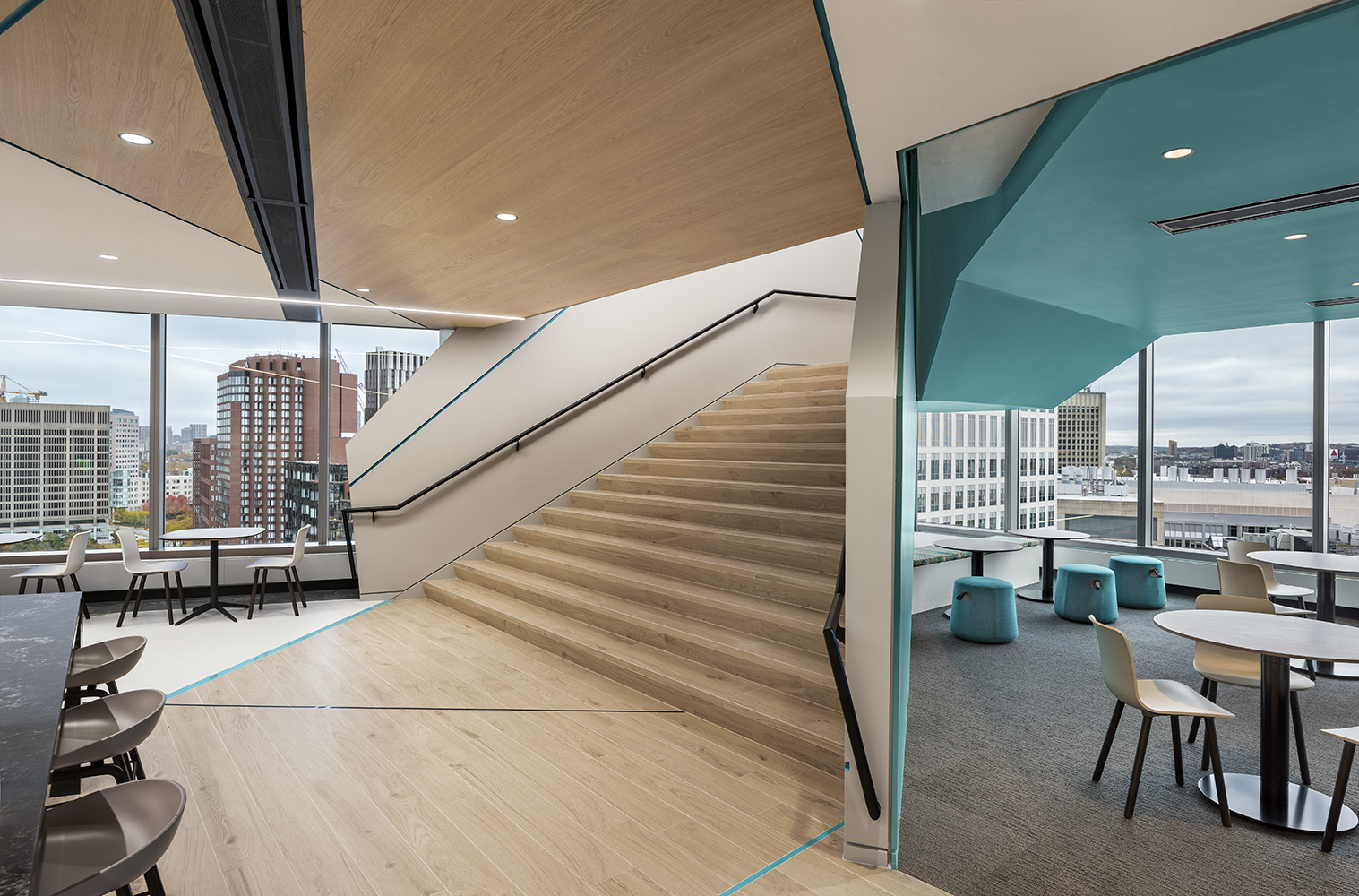
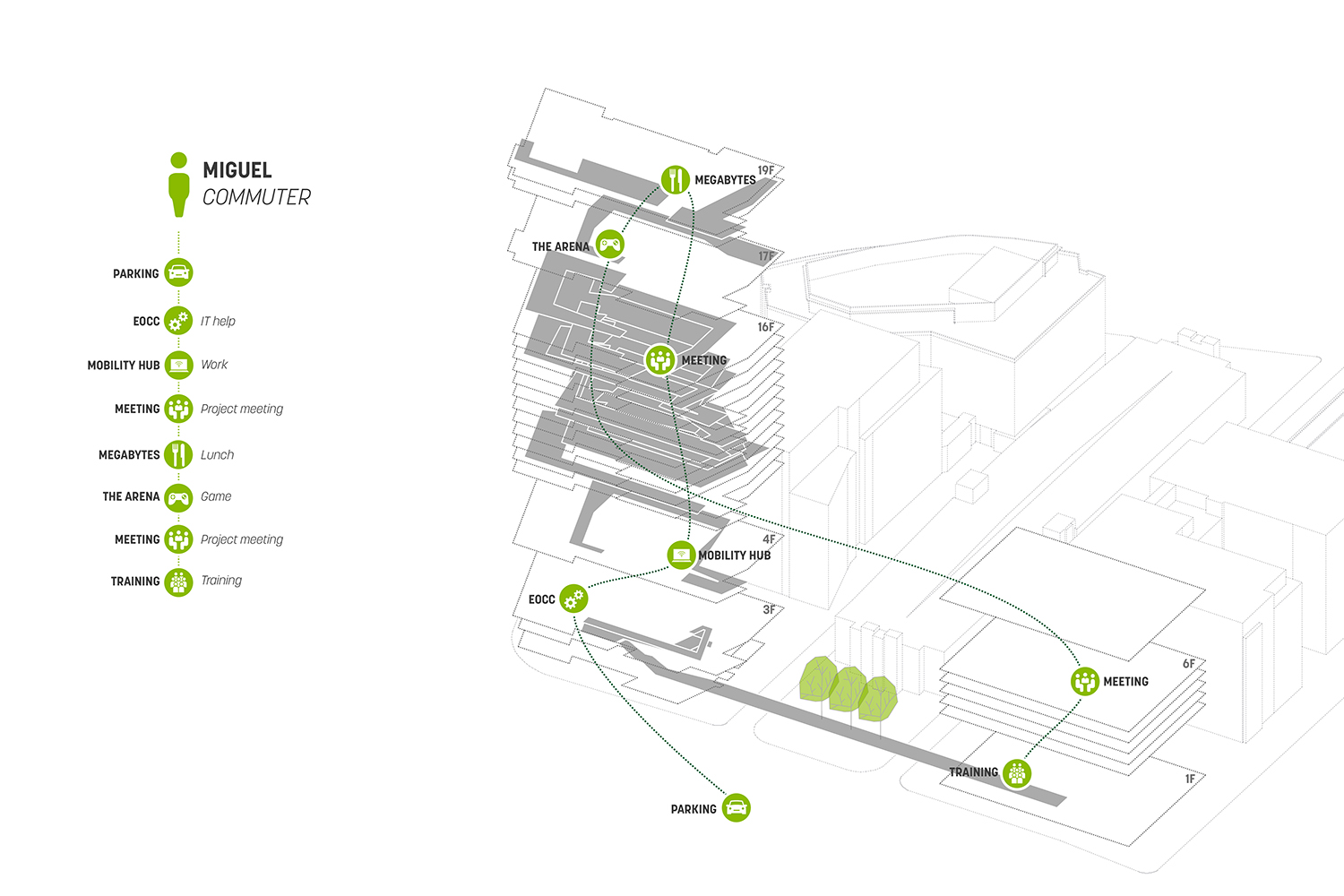
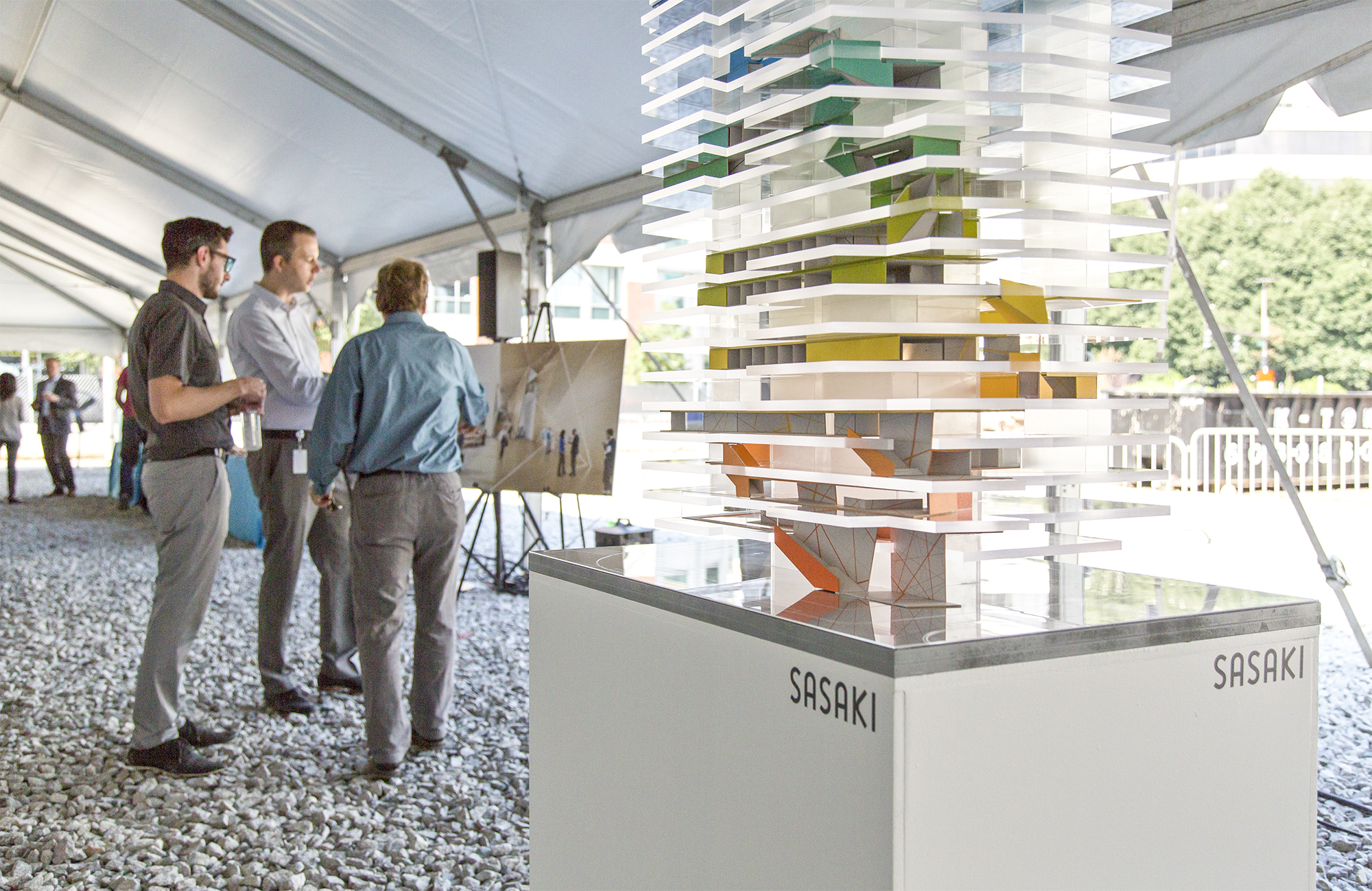
Related Stories
Modular Building | Jun 10, 2015
London debuts business complex made from 50 shipping containers
London's newest business complex, Pop Brixton, will support local entrepreneurs, create jobs, and is made entirely of shipping containers.
Office Buildings | Jun 9, 2015
Bjarke Ingels unveils stepped design for final WTC tower
The towering "staircase" will rise from St. Paul’s chapel to the skyline, leaning against One World Trade Center.
Office Buildings | Jun 9, 2015
Hines planning $300 million office tower for Denver skyline
Designed by Pickard Chilton, the 640,000-sf tower is geared for large-scale tenants, with features like floor-to-ceiling glass, a 5,000-sf fitness center, a tenant lounge, and a series of outdoor terraces.
Office Buildings | Jun 3, 2015
Tech's influence on the workplace: 4 lessons from the field
Beyond space and programmatic considerations, four tenets highlight today’s tech workplaces: strength of story, design empathy, technology presence, and hackerspace.
Office Buildings | Jun 1, 2015
SHoP Architects unveils dual-glass-box scheme for Uber HQ
The plan involves two glass buildings connected with criss-crossing bridges.
Office Buildings | Jun 1, 2015
Can you make a new building as cool as a warehouse?
Just as we looked at that boarded up warehouse and thought it could be something other, office towers can be reborn, writes CannonDesign's Robert Benson.
Multifamily Housing | May 28, 2015
Census Bureau: 10 U.S. cities now have one million people or more
California and Texas each have three of the one-million-plus cities.
Retail Centers | May 18, 2015
ULI forecast sees clear skies for real estate over next three years
With asset availability declining in several sectors, rents and transactions should rise.
Office Buildings | May 18, 2015
New ASHRAE standard offers test method to determine heat gain of office equipment
The standard will aid engineers in configuring cooling systems in office buildings.
Office Buildings | May 17, 2015
Mountain View, Calif., denies development rights for Google campus master plan
Despite Google’s offer of new bike paths, wetlands restoration, and other perks, the city of Mountain View, Calif., denied the company the development rights to construct a grand new headquarters.


